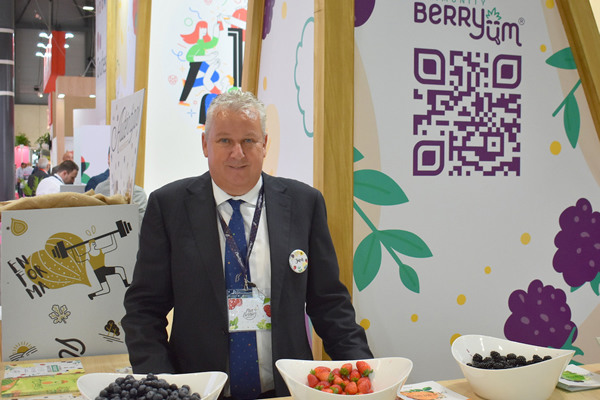Water shortages are proving significantly challenging for the soft fruit sector in the Spanish province of Huelva. "If it doesn't rain substantially soon, things will get really tense," says Jan van Bergeijk, who has been active in Spanish cultivation for over 30 years and is commercially responsible for raspberries within the Plusberries group.
"Our water usage was already cut by 25%; now it's 50%. If it stays like this and there's no rain, quite a few growers won't be able to plant everything. If you use half of your water supply in the first six months, you don't have any left for the remaining six months. That's what's happening here."

"This year's planting in this region was already much lower, and cultivation will likely only keep decreasing. Blueberry plants can last eight years, so they'll probably be prioritized over other soft fruit. But if you want to plant strawberries in October and there's no water, you simply won't," Jan explains.
"On February 1, there's a protest regarding water shortages in Seville. I don't think it's not just about the drought; it's also a political issue. I always say, if we can lay a gas pipeline from Siberia to Europe, then a water pipeline from North to South Spain should be possible, too."
"Overall, agriculture isn't getting any easier. When you see how growers struggling with personnel cost increases, the shortening of work weeks, and work permit problems, you don't get the impression that the government is thinking about the food of the future," Jan points out.
According to him, moving cultivation to neighboring countries like Morocco is a step too far for many smaller growers. "I doubt they're ready for that. Also, those countries, too, often struggle with water shortages. We'll have to wait and see if we get a wet spring. Until then, we try to give our customers the best possible quality and service."
Van Bergeijk says there are fewer obstacles this season, sales-wise. "Also, due to El Niño, there's clearly less fruit on the market. We export all over Europe, to Scandinavia, Eastern Europe, England, the German-speaking countries, and the Netherlands. Prices are good, and for raspberries, I foresee little change until late March/mid-April. Strawberry prices are always less predictable; they fluctuate more," he concludes.
For more information:
Jan van Bergeijk
Remolino Berries
Tel.: +34 609 016 654
Raspberry@plusberries.com
www.plusberries.com
